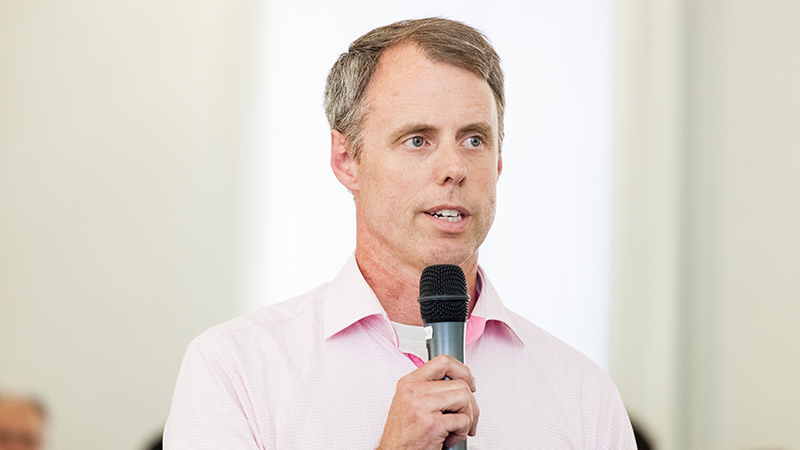Director of the Department of Service Delivery and Safety at the WHO: health improvement is intertwined in the building of domestic capacities
With the United Nations General Assembly passage of the seventeen Sustainable Development Goals in September of 2015, nations, organizations and individuals alike are working towards achieving these goals as well as considering what meeting these goals means about a country's capacities, systems and infrastructure.
“Achieving the Sustainable Development Goals will be a much better indicator of whether a country has a stronger health system, but also a stronger society. Because, it is not just about the health, it is also about energy, access to clean water, and inclusive education, components that should move together"
Ed Kelley, Ph.D. is the director of the Department of Service Delivery and Safety at the World Health Organization (WHO) in Geneva, Switzerland. While participating in the session, Better Health Care: How do we learn about improvement?, Kelley spoke to Salzburg Global about the challenges posed by infectious diseases, providing health cautions and working towards achieving global health goals.
Kelley, who was involved in the response to Ebola as well as efforts for improvement for future infectious disease crises, said that meeting the previous Millennium Development Goals, did not necessarily indicate that a country had a strong health system. He says, "“you can do well on the Millennium Development Goals, but still have a heath workforce that is not well trained, has no proper graduate education programs, poor supply chains and no functional laboratories. So while the Sustainable Development Goals were in the works for many years, in some ways they will be part of a response to Ebola. Although there are many more of them, seventeen to be exact, and they are extremely detailed, the whole overarching theme of it is around the building of domestic capacity and that countries build up their own abilities."
When issuing warnings regarding infectious diseases as well as health-safety concerns, Kelley notes that these announcements must be administered with the utmost attention and clarity, as they can lead to a multitude of implications. "For many of the tropical nations where warnings have been made, their economies are based largely on tourism. For the Ebola countries, the biggest impact was the shutdown of trade and transport."
In improving health care systems, Kelley discusses the value of convening with others in the discipline. He first came to Salzburg in 2012, as a Fellow of the session Making Health Care Better in Low and Middle Income Economies: What are the next steps and how do we get there? He says, "for me it was this great opportunity of bringing different types of people together, in an environment that is super conducive for reflection."
He notes that for himself and many of the other Fellows, it is rare in their busy schedules to have even four days in one place, with the time for lengthy discussions; "I think that the seminar is designed to create interchange and interaction. It encourages trust between people and enables them to speak freely. In this session specifically, we have talked about creating a framework or some set of principles that can be taken to the outside world."
He underscores the value of producing a framework from the ideas discussed during the session, noting, "the WHO would like to discuss it with our six regional offices and talk about how these principles could be relevant to the work that they are doing and use it to form a basis for a better way of working."


